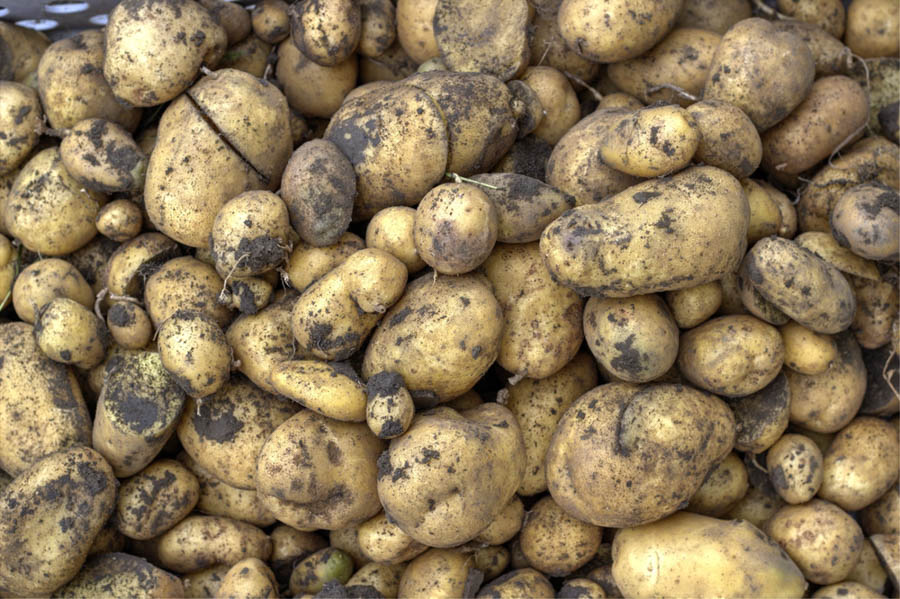How to Purchase Seed Potatoes

GardenZeus recommends growing potatoes not from true seed but from seed potatoes, pieces of whole potato or a small whole potato. To avoid purchasing and using diseased or infected seeds, purchase only certified disease-free seed potatoes from a reputable source. Non-certified seed potatoes may carry root knot nematodes, or various viral diseases.
Quality certified disease-free seed potatoes should be smooth, uniform in size and shape and free from bruises.The ideal seed potato weights from 2 to 4 ounces. Larger pieces may require cutting. Cubed or rectangular pieces are optimal. In general small seed potatoes are less likely to succumb to rot than larger seed potatoes. In addition, each piece should have at least two eyes, but no developed sprouts.
Do not plant potatoes purchased from the grocery store: they will have most likely have been treated with a growth inhibitor to keep them from sprouting. If purchasing potatoes at a farmers market, ask the farmer if the potatoes have been treated with a growth inhibitor; if the answer is yes, enjoy the potatoes on your table, but don’t use them to plant your next potato crop. This growth inhibitor can be valuable when trying to prohibit the growth of sprouts for sale, but it will work to delay and retard the eventual development of sprouts once the seed potatoes are planted. Seed potatoes must sprout to create the potato plant once placed in the ground.
Under optimal conditions, each potato plant should produce 5 to 10 potatoes. Put another way, every pound of seed potato planted should produce 10 to 15 pounds of potatoes.
Don’t know your GardenZeus climate zone? Click here.
Other articles of interest:
Tips for Managing Fallow Garden Beds and Containers
Chlorine, Soil and Watering Gardens
Remove Chlorine When Watering Organic Gardens